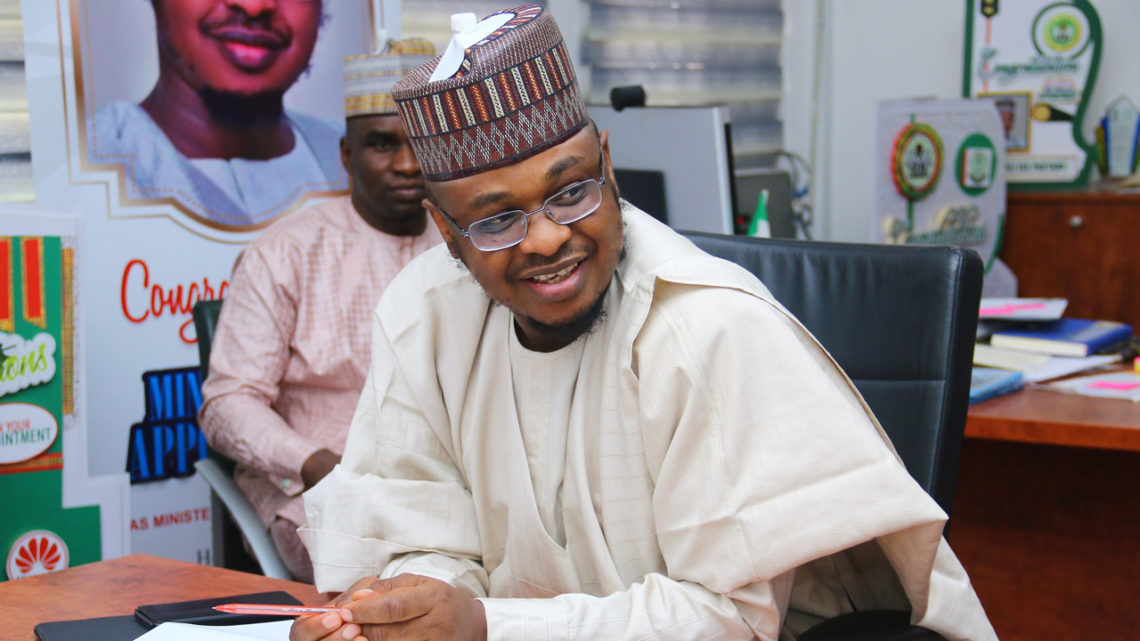ICT experts have tasked the Nigerian government to prioritise the provision of infrastructure so as to position the country to massively reap the benefits of a digital economy as obtained in some developed nations of the world.
ICT experts who made the call at the NITRA ICT Growth Conference 2.0, in Lagos, were of the consensus that the provision of infrastructure remained Nigeria’s surest pathway to building a robust digital economy.
Themed ‘Creating a Digital Ecosystem in Nigeria: The Hurdles, The Gains,’ the panelists drawn from both the public and private sector establishments, stated that efforts at building Nigeria’s digital economy cannot yield the much-desired fruit unless there is sustained commitment on the part of the government to prioritise the provision of infrastructure.
CFO of Medallion Data Centre, Seyi Olarenwaju, said infrastructure is going to play a vital role in enhancing digital systems in Nigeria’s digital ecosystem, noting that if there is no infrastructure in place, there is nothing. He added that since governance has now been replaced by electioneering campaigns in preparation for the 2023 general election, the incoming administration should be focused, identify a particular infrastructure, and fix it, and expressed the hope that if in this regard, power is given priority attention, a lot of things will follow suit.
Kelechukwu Nsofor of Rack Centre, a carrier-neutral Tier III data centre, who spoke from a data centre provider’s perspective, said power is the key infrastructure that drives a data centre business, describing it as basically the livewire of any data centre.
“The key infrastructure that we rely on is power. Power is basically the livewire of any data centre. Unfortunately, if you go back to 1999 since we started the current democratic dispensation in the country, what has been the installed capacity in terms of power? 20 years down the line, where are we today in terms of power?
“At a point, we were generating 1600MW, today, it’s still hovering around 3000MW. Where does that leave us as an economy of over 200 million people? So, if you look at the population growth rate and try to compare it with what we are growing in terms of power, you see that there’s a total disconnect. We would like a situation where the government will actually stop the lip service that goes into infrastructure like power and actually start showing serious commitment by playing a major role in the provisioning of power infrastructure,” Nsofor explained.
Noting that the digital economy is all about using the internet basically to push economic activities, Nsofor stated that, what is critical even with the efforts at bringing in foreign direct investment, all the marine cables sitting on the coast of Lagos, is how to work with the private sector and knowledge experts basically on how to get things like multiple taxations and right of way out of the road.
“Operators can now push that capacity where it is actually needed. This will help us increase internet penetration, increase the digital economy growth, and push the economy forward,” he averred.
In his contribution to the discourse, Babalola Olalekan of Phase 3 Telecoms admitted that the government is doing enough to provide infrastructure but stated that there was a need for stronger synergy between the government and service providers. “There was a document released last year called Strategic Roadmap/Action Plan: A four-year plan 2021-2024. The key performance indices released in that document classified infrastructure in such categories as soft, service and hardware,” he said.
Olalekan said that going into the 2023 election, the most important thing to be focused on is security, stating that operators have many works to do out there in the field yet, they find it difficult to restore the network in the shortest possible time while urging government to make sure that roads, villages and towns are secured.”
Chidi Okpala of Galaxy Backbone, expressed the need for policymakers to be much more intentional about what the country is doing, how it the affects everyone, and how the efforts at building the country’s digital economy can be sustained.





